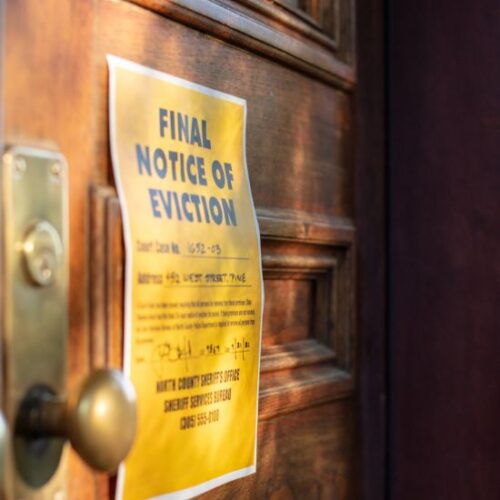Until it arrives at your doorstep, the 1985 California state law known as the “Ellis Act” may never cross your mind. San Francisco tenants whose thresholds are darkened by Ellis Act notices of termination of their tenancies find themselves in a confusing and challenging position. What is the Ellis Act and why are they facing eviction?
“You’ve been Ellised!”
The Ellis Act is a 1985 California state law that allows landlords to evict residential tenants to “go out of the rental business.”
In California, landlords (big and small) can choose to go out of the rental business and evict tenants. Perhaps they want to cash out and retire, like anyone might decide if their investment has run its course. Perhaps they planned for years to move into a unit in their own duplex, and offer the other side to an aging parent. They are within their rights to serve an eviction notice and stop being a landlord.
The same right is available to corporations and real estate speculators. They can also sell their real estate holdings, and conduct subsequent evictions of multiple tenants, regardless of rent controls.
Big players take advantage of this to re-purpose or flip large rental holdings and maximize profits, exacerbating tenant displacement, driving affordable housing shortages and contributing to skyrocketing rents.
When the Ellis Act really took off
The Ellis Act began to see serious abuses by greedy landlords during the early days of the tech boom from 1992 to 1999. A map of Ellis evictions tells the story. Thousands of properties “went out of business” only to undergo condo conversions, or extravagant renovations aimed at capturing top-market rents.
More recently, landlords may also attempt Ellis Act evictions to access lucrative short-term rental income or TIC (Tenancy in Common) arrangements. The Ellis Act generated its own language – giving rise to the terms “Ellising” and “Ellised” buildings.
Rules for taking a building off the market under the Ellis Act
Fortunately, local governments may create a few legal speed bumps to protect tenants from the catastrophic impact of this type of eviction. California is putting the brakes on big money landlords.
Old Rules: To sell or re-purpose a building, a landlord must legally and properly evict the tenants, and fully remove the entire building from the rental market.
They must file a “Notice of Intent to Withdraw Residential Units from the Rental Market” with the San Francisco Rent Board. They must notify tenants to vacate the building within 120 days of the filing. The notice must inform the tenants of their right to financial relocation assistance.
Elderly (age 62+) or disabled tenants, or tenants who have lived in their building for at least a year must be allowed an extension of up to one year to vacate and are allowed greater compensation to relocate.
2022 Updates to The Ellis Act
On July 18, 2022, legislation took effect to amend statewide Ellis Act eviction rules.
New Rules:
- The date of withdrawal for all tenants matches the final day residents with 1-year allowable extensions (seniors and disabled residents) are given for the entire property.
- With some exceptions, if a landlord returns ANY units in the building to rental status, local governments are allowed to require ALL units be returned to the market.
- Relocation assistance amounts increase. In San Francisco, effective September 1, 2022, $10,000 must be paid to eligible tenants, plus $6,700 for any senior or disabled tenant. The assistance is capped at $30,000 per household. Increases will occur annually on March 1.
Tenants Can Prevail In Challenges to Ellis Act Evictions
There are many nuances to the Ellis Act and the recently enacted changes. Avoid acting quickly or irrationally if you receive a casual “warning” from your landlord that they may be selling your building. Question any document you receive regarding eviction, deadlines and relocation compensation. Seek help from a tenant’s rights organization, or contact a competent tenants rights attorney as soon as possible for advice.


 (415) 533-0735
(415) 533-0735 (415) 843-0496
(415) 843-0496